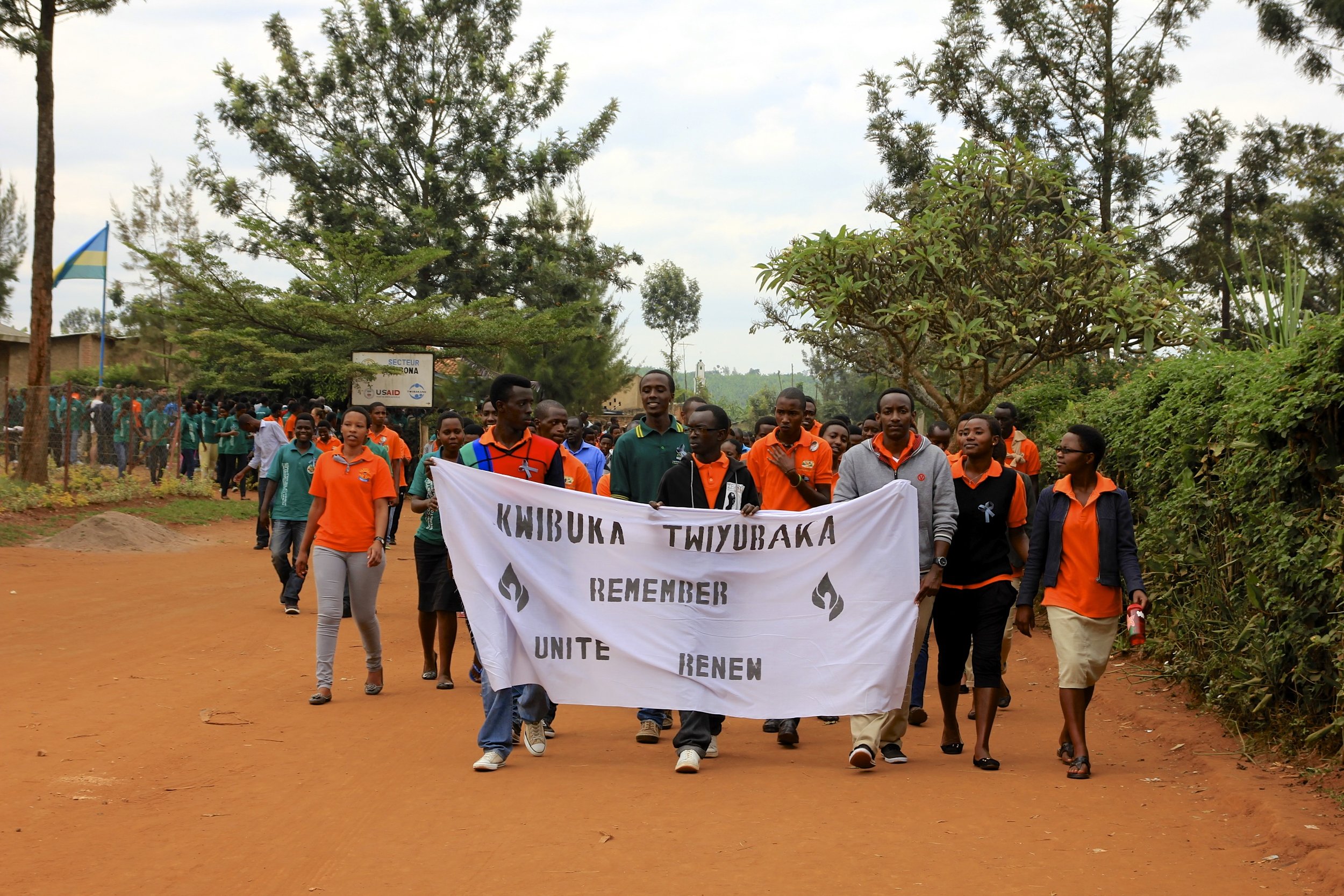I woke up thinking about Rwanda, a place I used to call home and to some extent, I still do. April 7 marked twenty two years after the Genocide against the Tutsi in 1994. Almost one million people were brutally murdered in that small landlocked country in the heart of Africa. To this day when I share my story about living in Rwanda, most people either seem bewildered or terrified. Quite honestly, I never felt scared to live in Rwanda. In fact, I think of this country not as the Land of a Thousand Hills, but the Land of a Thousand Smiles. I felt an overwhelming sense of generosity and respect unlike anywhere I've ever felt before. Kwibuka meaning, to remember, in Kinyarwanda, is the nation's theme for the commemoration. Not only do Rwandans come together to remember, but they focus on unity and renewal for a better life, a more peaceful life. The progress that Rwanda has undergone since 1994 is unparalleled to anything I've ever witnessed. It's truly remarkable the sense of community that I felt when living in the the country. For example, every last Saturday of the month people gather to perform umuganda, or community service. Neighbors help out in their communities, build homes, and clean the streets (Kigali is known to be the cleanest African capital). I was in awe of the level of peace that I felt in the country and I often wondered, "how?" How could a post-genocide nation achieve this level of peace in such a short time span? There could be a number of viable answers, but one that always comes to mind is forgiveness.
Webster's dictionary defines forgiveness as, "to stop feeling anger toward someone for doing something wrong." But it's much more than that. It's about the willingness to achieve inner peace despite past circumstances and external factors. Forgiveness doesn't mean condoning someone else's behavior or giving a free pass. It's about being in choice, and choosing to live a life with more freedom and happiness.
Rwanda's people a true testament of the power of forgiveness. These past few days, I've been reading stories of former victims and murderers living side by side in peace. I reflect on the people I've met who have overcome and atrocities beyond imagination.
I'm not implying that hatred or animosity doesn't still exist in Rwanda. I'm sure it does like anywhere else. But the Rwanda I know today is beautiful. Its people are kind, gracious, and respectful. The Rwanda I know is strong. They embrace the present moment and create possibilities that didn't exist before.
I think about my Rwandan friends and family often, and the lessons that they unknowingly shared with me. I never really understood what it meant to forgive until I lived there. I didn't realize that forgiveness meant freedom. For that, I'm forever grateful. As Rwanda embarks on its 100 day mourning period, I'm embarking on 100 days of gratitude for having the privilege to live and work in a place of peace, love, and hope. To the people of Rwanda, you inspire me to be a better human. With all of my heart, Murakoze cyane (thank you).

